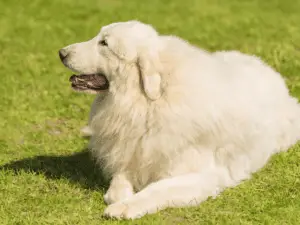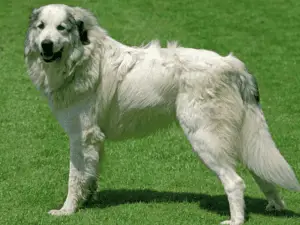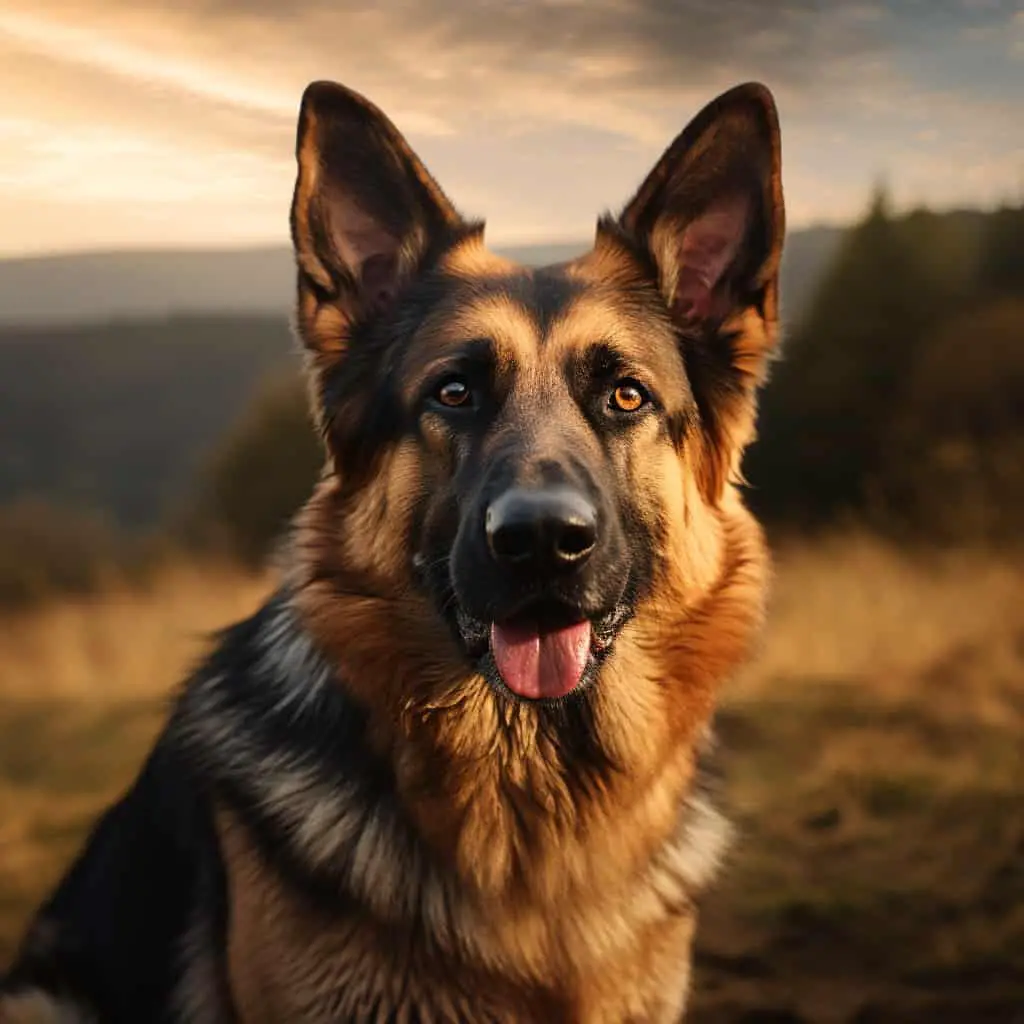New York City is known for its fast-paced lifestyle, towering skyscrapers, and vibrant nightlife. It’s not precisely the place you’d expect to find one of the largest and most majestic dog breeds in the world – the Great Pyrenees.
But despite the hustle and bustle of the city, these gentle giants have found a place to call home among the concrete jungle.
Let’s explore the history of the Great Pyrenees in New York City and five tips for owning and caring for one of these magnificent creatures in an urban setting.
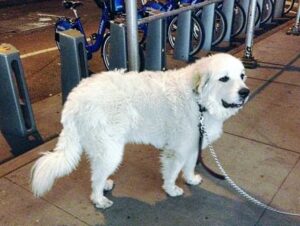
Surprising to see the Great Pyrenees in New York City
I was taking my dog, Kobi, out for a walk the other evening in Manhattan (Financial District), and you can imagine how surprising it was to bump into a Great Pyrenees.
Malesh, the Great Pyrenees, is a gentle and friendly dog only 2 1/2 years old. You’d never guess that, as Malesh is so young as he’s about 145 pounds.
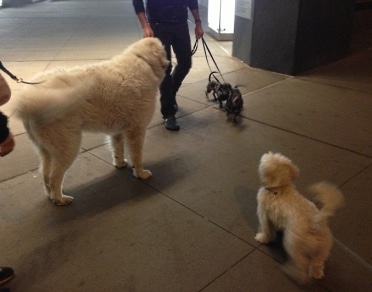
To get a sense of how large he is, you can see Malesh in comparison to some dachshunds and Kobi, who is about 18 pounds and in the foreground.
I asked Malesh’s mom if he got his own room or studio apartment, but she said he was really easygoing and didn’t need that much space. Malesh was pleasant around the other dogs and humans.
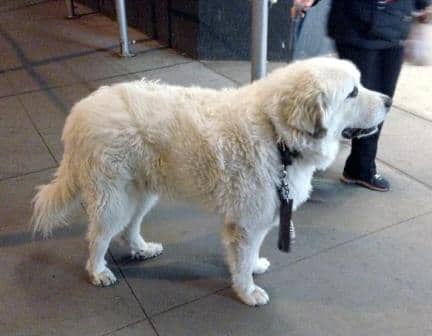
5 Tips for Owning and Caring for the Great Pyrenees in an urban setting like New York City
While Great Pyrenees is traditionally known as a guardian of sheep in rural areas, these gentle giants can also thrive in urban environments like New York City with the right care and attention.
Here are some tips for owning and caring for a Great Pyrenees in the city:
-
Exercise: Although they may be content to lounge indoors, Great Pyrenees require regular exercise to maintain their physical and mental health.
Take your dog on daily walks to help them burn off energy and keep them stimulated.
-
Grooming: The Great Pyrenees has a thick double coat that requires regular grooming to prevent matting and tangles. Brush your dog’s coat thoroughly at least once weekly to keep it healthy and shiny.
-
Socialization: Early socialization is vital for any dog breed, but especially for naturally protective ones, like the Great Pyrenees.
Introduce your dog to people of all ages and sizes and other dogs and animals to help them become well-adjusted and friendly.
-
Training: Great Pyrenees are intelligent and independent thinkers, so consistent training is essential. Start with basic commands like sit, stay, and come, and then move on to more advanced training like leash manners and recall.
-
Living Space: While the Great Pyrenees can adapt to apartment living, they still require plenty of space to move around and stretch their legs.
Ensure your living space is large enough for your dog to feel comfortable, and provide plenty of toys and puzzles to keep them entertained.
With proper care and attention, a Great Pyrenees can make a wonderful companion in an urban environment like New York City.
Whether taking your dog on long walks through Central Park or snuggling up in your cozy apartment, owning a Great Pyrenees in the city can be a rewarding and fulfilling experience.
History of the Great Pyrenees
Here are some interesting facts about the Great Pyrenees from Dog Breed Info Center :
The Great Pyrenees has its origins in Central Asia or Siberia, and is related to the St. Bernard.
The breed has a rich history as a guardian of sheep, and remained in high mountain regions until the Middle Ages when it became popular with French nobility as a guard dog.
By the late 17th century, every French noble wanted to own a Great Pyrenees, known for its thick coat and spiky collar and used to protect flocks from wolves and bears.
This versatile breed has also served as an avalanche rescue dog, cart-puller, sled dog, pack dog on ski trips, and even as a dog of war. Today, the Great Pyrenees are recognized by the AKC as both loyal companions and defenders of family and property.
